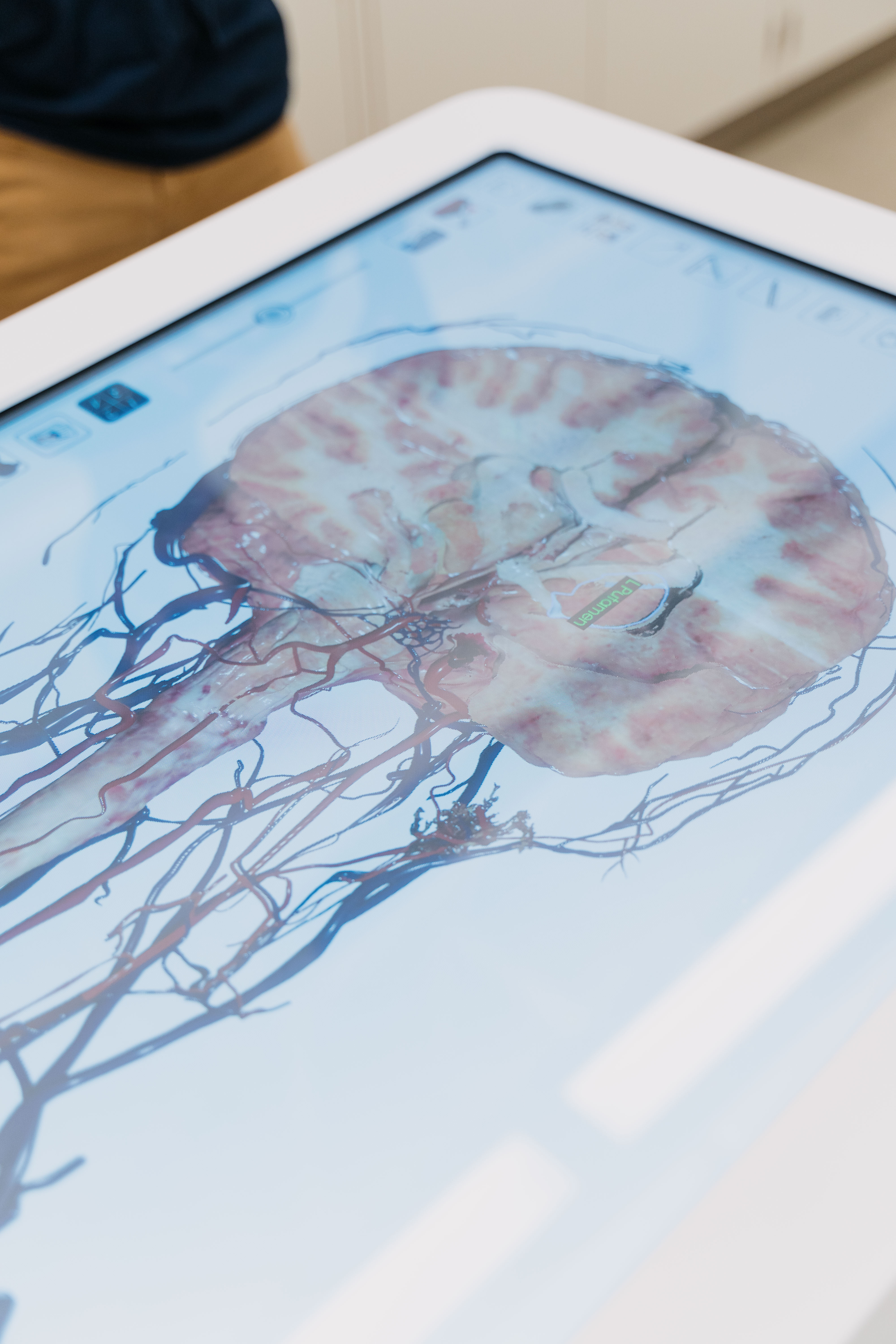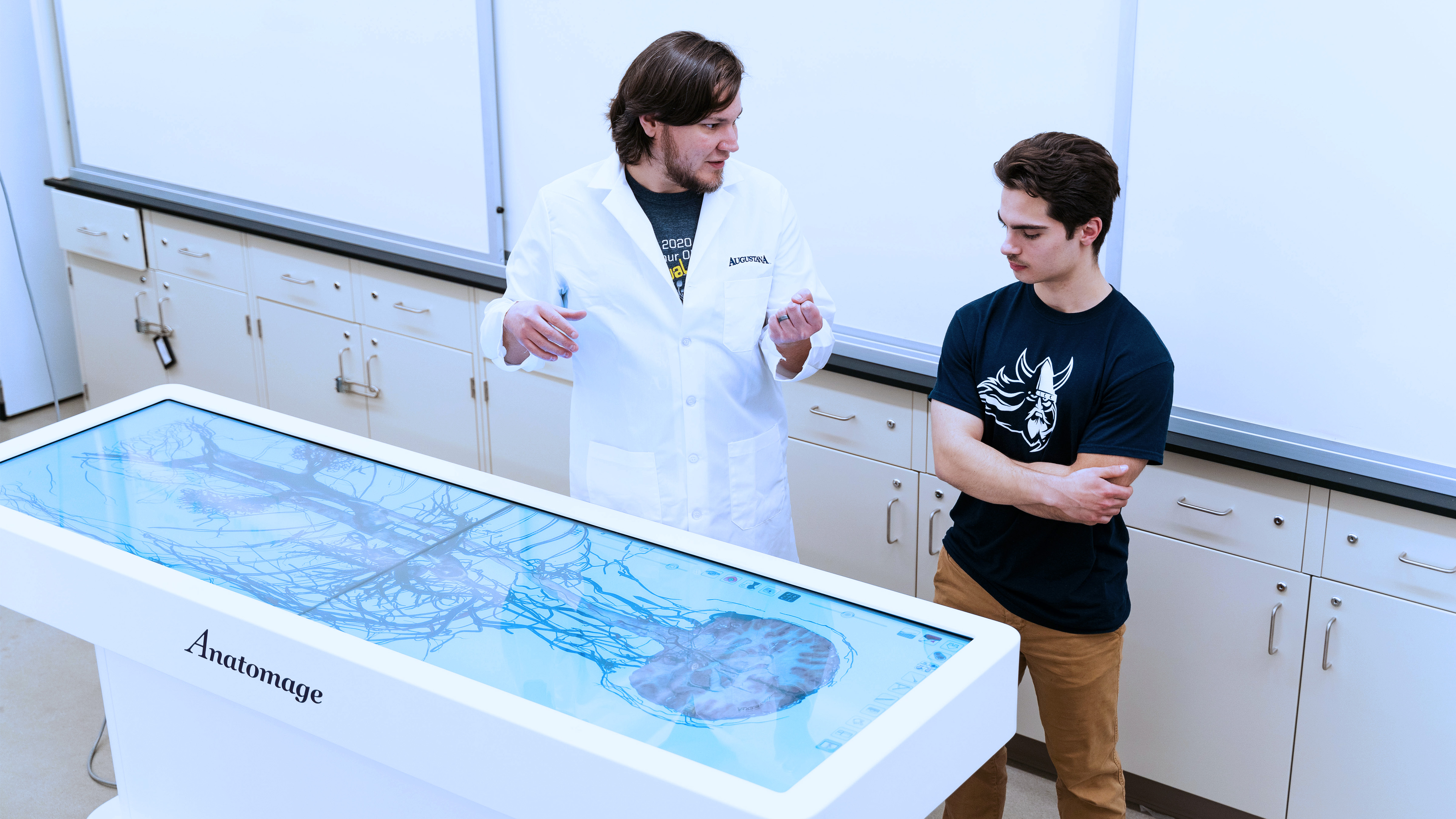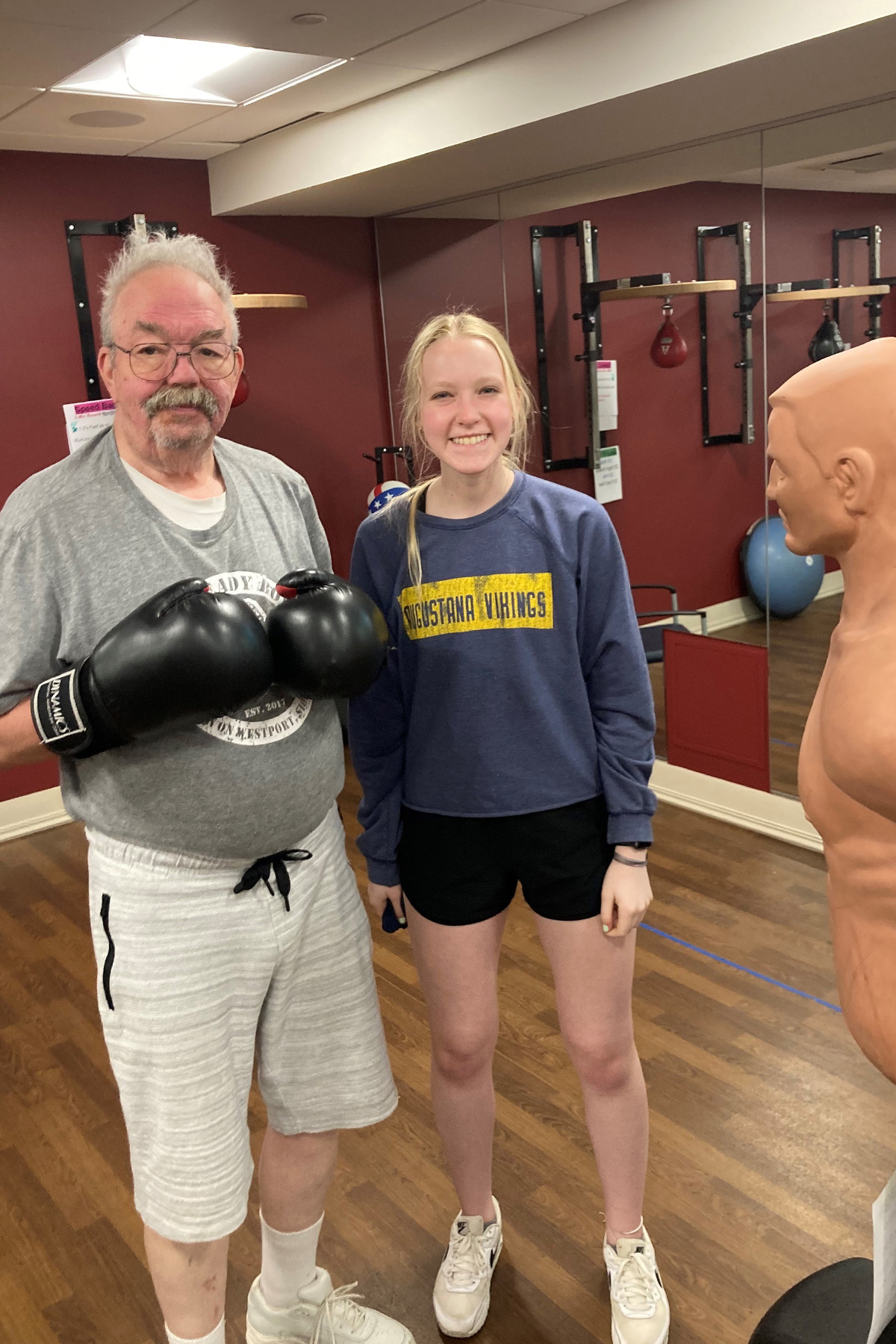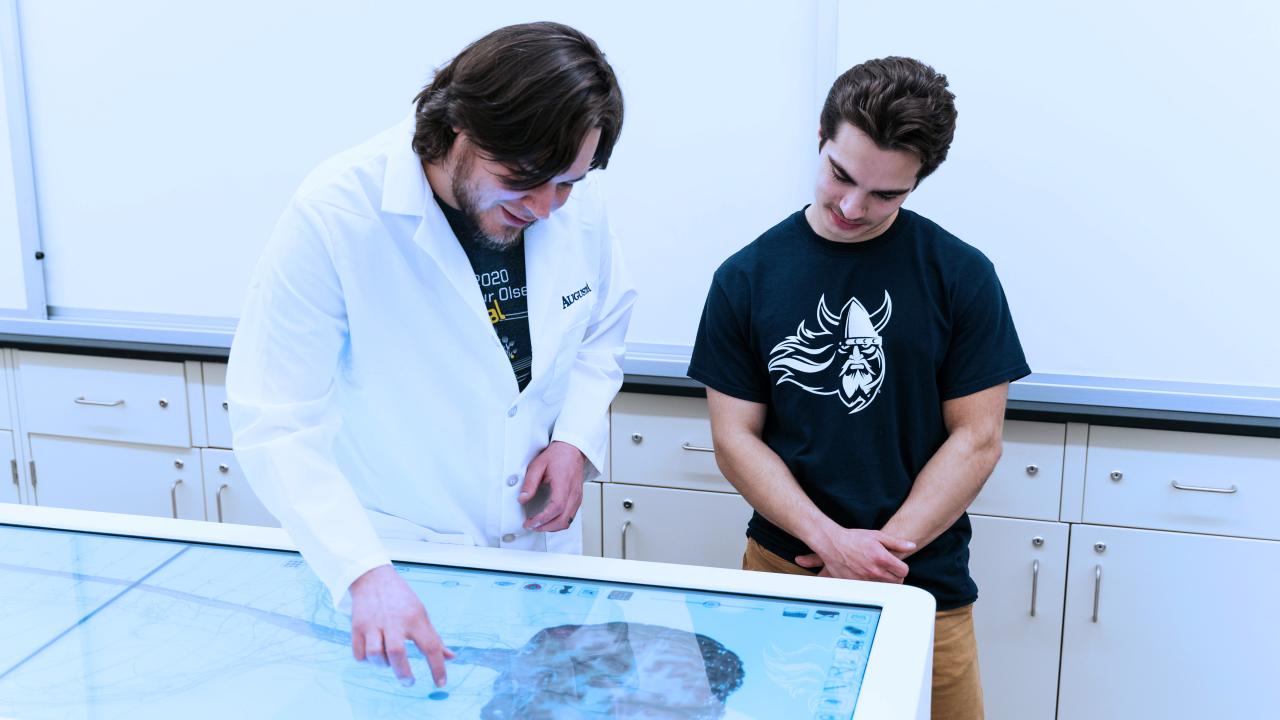Beginning in the fall, Augustana University will offer a major in neuroscience. The major will be in addition to the neuroscience minor, which launched in Fall 2022, as well as a neuroscience emphasis for psychology majors.
 “We’ve just had so many students interested in neuroscience who were clamoring for more courses and a way to really shape their entire degree around neuroscience,” said Dr. Alex Kloth, associate professor of biology and director of the neuroscience program. “And, in the last couple of years, we've hired two neuroscientists in the psychology department, and that has given us enough people to really make this feasible.”
“We’ve just had so many students interested in neuroscience who were clamoring for more courses and a way to really shape their entire degree around neuroscience,” said Dr. Alex Kloth, associate professor of biology and director of the neuroscience program. “And, in the last couple of years, we've hired two neuroscientists in the psychology department, and that has given us enough people to really make this feasible.”
The neuroscience major — housed within the Center for Interdisciplinary Studies — will consist of required courses in neuroscience and psychology, as well as supportive courses in biology and chemistry. Students will also dive into neurobiology, neuropsychology and data science through selective classes.
The program, Kloth said, is flexible — allowing students to follow the path in which they’re most interested.
“If you want to go to medical school, we can make that work,” said Kloth. “If you want to be a professional psychologist, we can make that work. Many students are interested in the interface between neuroscience and a whole range of topics that really fit our liberal arts mission. So, you get the foundation of biology and psychology, but there’s wiggle room.
“One thing that’ll set us apart is our multidisciplinary approach.”
The neuroscience major will pair well with majors in biology and psychology for students looking to pursue careers in psychiatry, counseling, working with older populations or studying brain development. For students interested in how neuroscience affects the law, Kloth suggests a second major in criminal justice or government & international affairs.
“(There’s marketing and business administration) if you’re interested in how behavioral science shapes how we use what we know about the brain for better or worse and to sell things. There’s philosophy if you’re interested in how our ideas about responsibility and free will change based on what we know about the brain,” Kloth said. “There are also science writers who could benefit, as well as those interested in education who want to teach about the brain.”
Kloth noted that the neuroscience major is beneficial for a range of pre-professional health students, including pre-medicine, pre-physical therapy and pre-optometry, as well as those who are interested in pursuing graduate school to research the brain.

Kloth said he and his department have also made the existing neuroscience minor more flexible to accommodate students who have tight schedules. This includes nursing, biochemistry and communication disorder majors — the latter of whom now often need a neuroscience background to gain acceptance into graduate school.
Alexis Dooley ‘25 has been a dedicated neuroscience student since she arrived at Augustana — starting out with biology major and neuroscience emphasis, then adding the minor in Fall 2022 and immediately adding the program as a second major when the option became available this past spring.
“Part of the reason I came to Augustana was because I met Dr. Kloth during a (campus) visit and was really interested in the neuroscience courses that Augustana offered,” Dooley, a Sioux Falls native, said. “I am a pre-med student and had a clinical neurology internship, so I have gained a passion for all things brain and spine. As a result, I have taken as many neuroscience and related courses as I can. Adding the neuroscience major seemed like a great way to expand my knowledge of the topic.”

Dooley is working on an independent research project, gauging how boxing classes affect the mood, disease outlook and symptom progression of those with Parkinson’s disease. Dooley, who regularly volunteers at the boxing classes, said she’s already seeing the benefits of her neuroscience courses — forming stronger connections with the boxers because of her understanding of the disease and how it can affect people.
Dooley has also completed a semester-long internship shadowing neurologists in Sioux Falls.
“This was one of my best experiences,” said Dooley. “Being able to see how neurologists interact with patients and experience the clinical applications of neuroscience was very exciting and helped to confirm that I was on the right vocational pathway.”
After medical school, Dooley is considering pursuing clinical neurology or neuro-critical care. In the meantime, she’s the president of the Augustana Neuroscience Club, which she founded last year.
“When I started the organization, I wanted to spread awareness of neurodegenerative disease at Augustana and to the greater Sioux Falls community, and be a space for interdisciplinary discussions of the ethics and innovations within the field of neuroscience,” Dooley said.
Last year, the club hosted a neuro-ethics panel, and this year, Dooley hopes to become more engaged with the Sioux Falls community and participate in more hands-on learning experiences.
Students can also gain hands-on experience from one of three on-campus labs focused on neuroscience and psychology. Kloth’s lab and research focus on neurodevelopmental disorders, including autism. Dr. Lucas Hamilton, assistant professor of psychology, leads the Healthy Experiences Across Life (HEAL) Lab — investigating Alzheimer’s disease, mental health stigma and social connection. The Music, Social Interaction & Cognition (MuSICog) Lab is led by Dr. Shannon Proksch, assistant professor of psychology, which uses music as a model of human social interaction.
As interest in the program grows, so does Kloth’s excitement.
“The thing I'm most excited about is that the students are really excited about it,” said Kloth. “And, I think based on the students' excitement, this is going to grow and change, and I'm excited to see where that's going to go.”
To learn more about Augustana’s neuroscience major, visit augie.edu/neuroscience.
